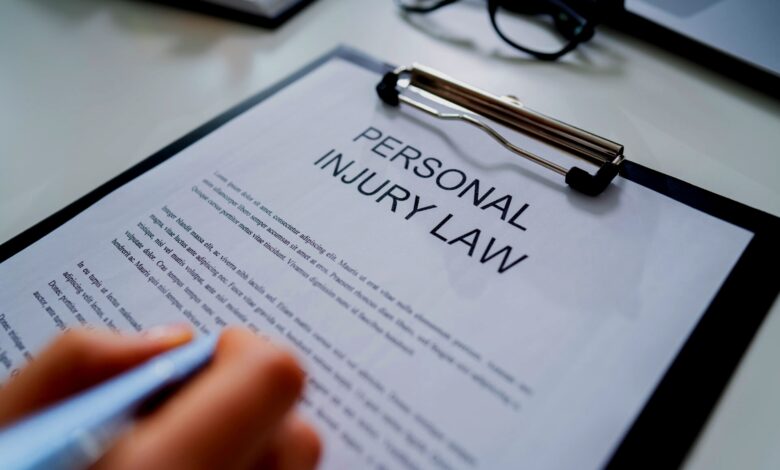Personal Injury Laws in South Carolina: A 2025 Guide
This comprehensive guide explores personal injury laws in South Carolina for 2025, covering key statutes, regulations, and legal processes.

Navigating the complexities of personal injury laws in South Carolina can be challenging, especially when dealing with the aftermath of an accident or injury. Whether you’re facing medical bills, lost wages, or emotional distress, understanding your legal rights is critical to securing fair compensation.
This comprehensive guide explores personal injury laws in South Carolina for 2025, covering key statutes, regulations, and legal processes to help you make informed decisions. From car accidents to slip-and-fall cases, we’ll break down everything you need to know about personal injury laws in the Palmetto State.
What Are Personal Injury Laws?
Personal injury laws govern legal disputes when an individual suffers harm due to another party’s negligence, recklessness, or intentional actions. In South Carolina, these laws provide a framework for victims to seek compensation for damages, including medical expenses, pain and suffering, and lost income. The purpose of personal injury laws is to hold responsible parties accountable and ensure victims receive justice.
Personal injury cases in South Carolina typically fall under tort law, which addresses civil wrongs. Common types of personal injury cases include:
- Car accidents: Collisions caused by negligent drivers.
- Slip and falls: Injuries due to unsafe property conditions.
- Medical malpractice: Harm caused by healthcare providers’ negligence.
- Workplace injuries: Accidents occurring on the job.
- Product liability: Injuries from defective or dangerous products.
Each case requires a thorough understanding of personal injury laws to determine liability and calculate damages. In 2025, South Carolina’s legal landscape continues to evolve, with updates to statutes and case law shaping how claims are handled.
Key Elements of a Personal Injury Claim in South Carolina
To succeed in a personal injury case under personal injury laws, plaintiffs must prove four key elements:
1. Duty of Care
The defendant (the party being sued) must have owed the plaintiff a duty of care. For example, drivers have a duty to operate vehicles safely, and property owners must maintain safe premises.
2. Breach of Duty
The plaintiff must show that the defendant breached their duty of care through negligent or reckless actions. For instance, running a red light or failing to fix a hazardous staircase could constitute a breach.
3. Causation
The breach of duty must have directly caused the plaintiff’s injuries. This requires evidence linking the defendant’s actions to the harm suffered.
4. Damages
The plaintiff must demonstrate actual damages, such as medical bills, lost wages, or emotional distress. Without provable damages, a personal injury claim may not succeed.
South Carolina’s personal injury laws emphasize these elements to ensure fair outcomes. Consulting a South Carolina accident lawyer can help clarify whether your case meets these criteria.
Statute of Limitations for Personal Injury Claims
Under personal injury laws in South Carolina, the statute of limitations sets a deadline for filing a lawsuit. For most personal injury claims, including car accidents and slip-and-falls, the statute of limitations is three years from the date of the injury (South Carolina Code § 15-3-530). This means you have three years to file a lawsuit against the responsible party. Exceptions include:
- Medical malpractice: A three-year limit applies, but it may start from the date the injury was discovered (or reasonably should have been discovered), with a maximum of six years from the date of the medical error.
- Minors: If the injured party is a minor, the statute of limitations may be tolled until they turn 18.
- Government entities: If the defendant is a government entity, special rules apply, including a shorter two-year statute of limitations and a requirement to file a notice of claim within one year.
Failing to file within the statute of limitations can bar your claim, making it critical to act promptly. A South Carolina accident lawyer can help ensure compliance with these deadlines.











